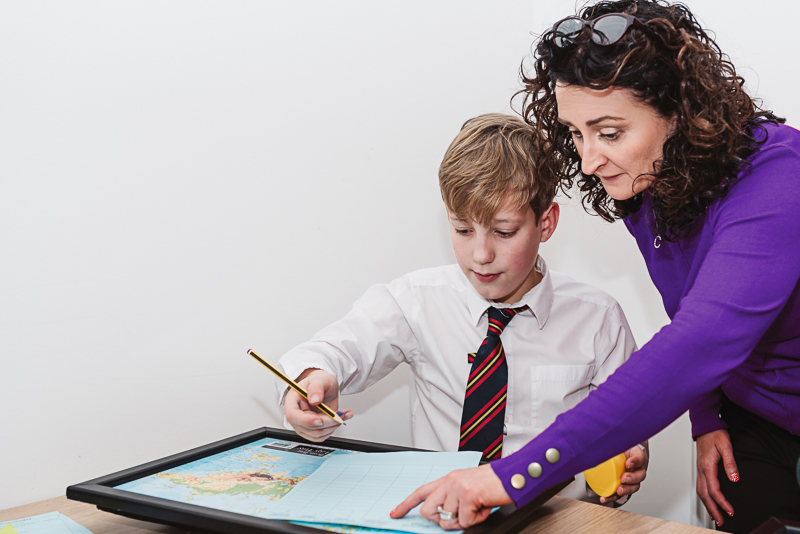I’ve just completed my first formal assessment with my Year 5 11+ students, and many of the parents have asked how they can help their child at home. I thought it might be useful to share an adapted version of this to help others parents who may be in a similar situation.
Planning and Preparation
This is the first time many of the children have prepared formally for examinations, and so they will not have had the experience of organising and planning their study time. Print off a planner (Bond have one that you can find on their website (http://bit.ly/2Cx1onv) and work with your child to prepare a timetable of when they will be able to study and complete their homework around the family’s schedule and their extra-curricular activities. At this point in the year, they should aim to do around half an hour’s study per day, whether that is homework your tutor sets or extra activities that you would like to go through with them.
Books
There are two books that are my ‘go to’ tomes. These have been used for many years in preparation for the 11+ exams, and you may even recognise using them yourself at school. I think these are easier for parents to use as they start with an explanation on the topic and there are many exercises that the children can do. Plus, if the children revisit some of these exercises with their tutor, there is no harm in them going over the tasks again and consolidating learning. They are First Aid in English and First Aid in Maths.
Approach to Learning
Every so often, we have an off day and really don’t feel like doing any work. This is true of children too, and we have to remember they are only young and this is all very new to them. However, if your child is showing a pattern of resistance towards completing their homework for you, then do let their tutor know. The children who do well in the entrance exams are very compliant and very self-motivated, and they need these attributes in order to pass the exams and succeed in the grammar school system. Often a little word from their tutor can work wonders and help them become motivated once again.
Adding to this, it’s not usually the academic knowledge which trips children up with the 11+, but it’s the pressure. Again, during study time with your child, build their self-confidence so that they believe they have all the necessary skills to sit the exams.
I am sure you are all praising your children for their hard work (remember to praise them for their efforts not their marks), and often a small incentive can go a long way to keep them motivated, so you may think about building this into your weekly planner.
Games and Activities
Not all learning needs to take the shape of sitting at a desk with a book. On the contrary, the grammar schools are looking for well-rounded individuals who have a comprehensive knowledge of the world around them. Trips to art galleries, festivals and the theatre are all really good ways to give your child exposure to different cultural experiences and the language and vocabulary which goes with it. Asking your child questions such as, ‘How do you think the lady feels in the picture? What did you think of that film/ play? Why?’ will help to develop your child’s verbal reasoning and vocabulary. It will also increase their confidence and ability to express themselves.
There are also many favourite games which can help your child develop their learning, social skills and resilience. I have listed some below, but there are many more:
| Game | Skills needed |
| Don’t Say It! | Verbal Reasoning, working under pressure, working to time, lateral thinking |
| Articulate | Verbal Reasoning, working under pressure, working to time, lateral thinking |
| Junior Monopoly | Numerical Reasoning, strategy, negotiation skills |
| Scrabble | Spelling, vocabulary, verbal strategy |
| Brain Box Maths | Many areas of numeracy including: number, shape, space and measure, calculation; working under pressure, working to time |
| Brainbox English | Grammar, spelling and punctuation. Also, working under pressure, working to time |
Online
There are also some website games which your child may like to explore on their own and that can also help them with their learning, but these two are consistently good and easy to access are BBC Bitesize (there’s loads of interactive games that your child can play on here which will help with their learning in English and Maths) and, of course, Bond. If you go to ‘Free Resources’ and create an account, there are lots of online quizzes and tests which your child can complete
Reading
I cannot stress enough how important reading is for the 11+ exams. When you go to the open events, the headteachers will often say that the best preparation is to , ‘Read, read and then read some more’! Please make sure your child has access to a dictionary and a thesaurus. They should be reading books which have some challenging words in them, and they will need to know the meaning of these words if they are to recognise them and use them in their work. Publications such as ‘The Week Junior’ are also a good idea to read, as it will keep your child up-to-date on current affairs and introduce them to topics that they may not necessarily pick for themselves. If you would like a copy of my reading list, then please feel free to contact me via the details below.
Finally, remember if you do employ a tutor, they should be there to answer any queries or questions that you may have.
What will you do to ensure the best chance of your child’s 11+ success?






